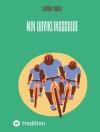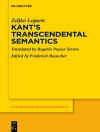In ‘My Path to Atheism, ‘ Annie Besant eloquently chronicles her journey from religious belief to atheism, offering a profound exploration of faith, doubt, and intellectual freedom. Written in a clear, engaging prose characteristic of Besant’s advocacy for rational thought, the book adeptly situates itself in the broader context of the late 19th-century philosophical debates surrounding religion and science. Through personal anecdotes and logical reasoning, Besant critiques traditional religious dogmas while championing humanism and the autonomy of individual thought, making her work a critical contribution to the discourse on secularism and the human condition. Annie Besant was a prominent social reformer, women’s rights advocate, and a leading figure in the Theosophical Society. Her diverse experiences, including early involvement with the Irish Home Rule movement and significant engagement in social issues of her time, expertly formulate her argumentation within the book. This rich tapestry of activism and philosophical inquiry reflects her desire for a more rational and equitable society, ultimately leading to her embrace of atheism as both a personal and social imperative. Highly recommended for readers seeking an insightful perspective on the intersection of faith and reason, ‘My Path to Atheism’ serves not only as a compelling autobiographical account but also as a critical reflection on the nature of belief itself. Besant’s articulate arguments and passionate prose invite contemplation, making this work essential for those interested in philosophy, theology, and the evolution of modern thought.
Об авторе
Annie Besant (1847-1933), a prominent figure of the late 19th and early 20th centuries, was a woman of diverse and influential roles. A dedicated social reformer, women’s rights activist, Theosophist, educational pioneer, and prolific writer, her life’s work was characterized by a relentless pursuit of truth and social justice. Besant initially gained recognition as a powerful orator in the freethought movement, and her atheistic views were eloquently presented in her seminal work ‘My Path to Atheism’ (1885), which outlined her philosophical journey from Anglican to secularist, and ultimately shaped the discourse on religious skepticism of her time. Beyond its autobiographical elements, the book serves as a critical examination of theistic doctrines through a lens of rational inquiry and reflective skepticism. Besant’s literary style in ‘My Path to Atheism’ and other writings reflects her intellectual rigor and passion for accessible education. Her contributions to thought and society extend beyond her written words, but it is through her literature that one can trace the evolution of her ideas from secularism to a broader metaphysical exploration when she later joined the Theosophical Society. Besant’s journey from atheism to theosophy illustrates a life led by an unwavering commitment to exploring the depths of spirituality and human potential.












